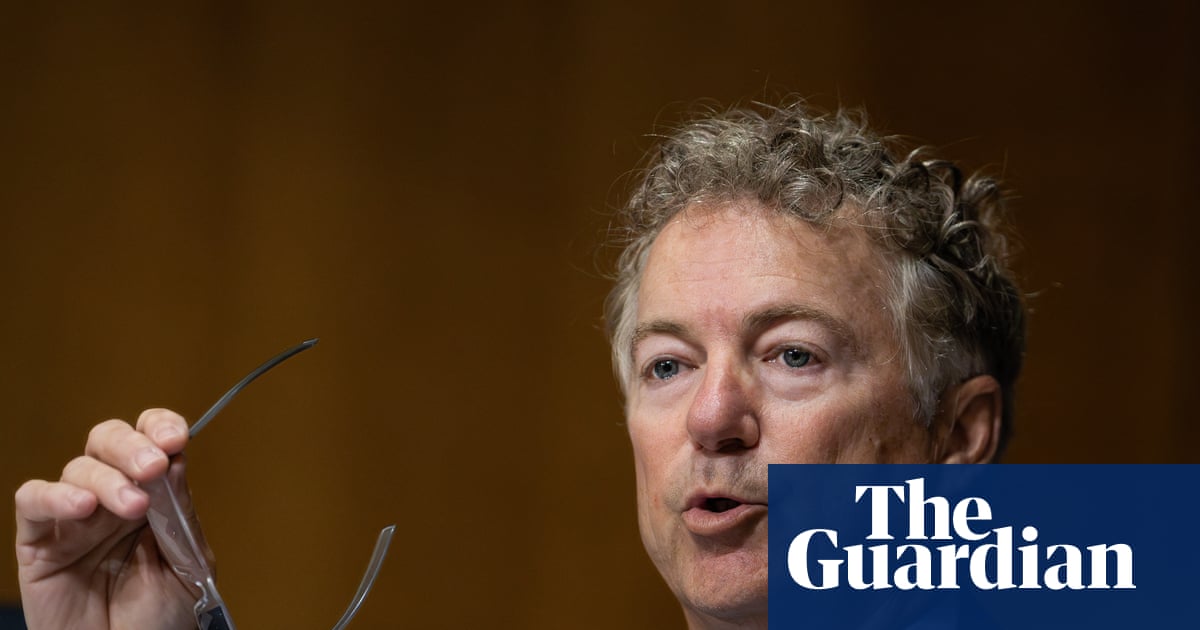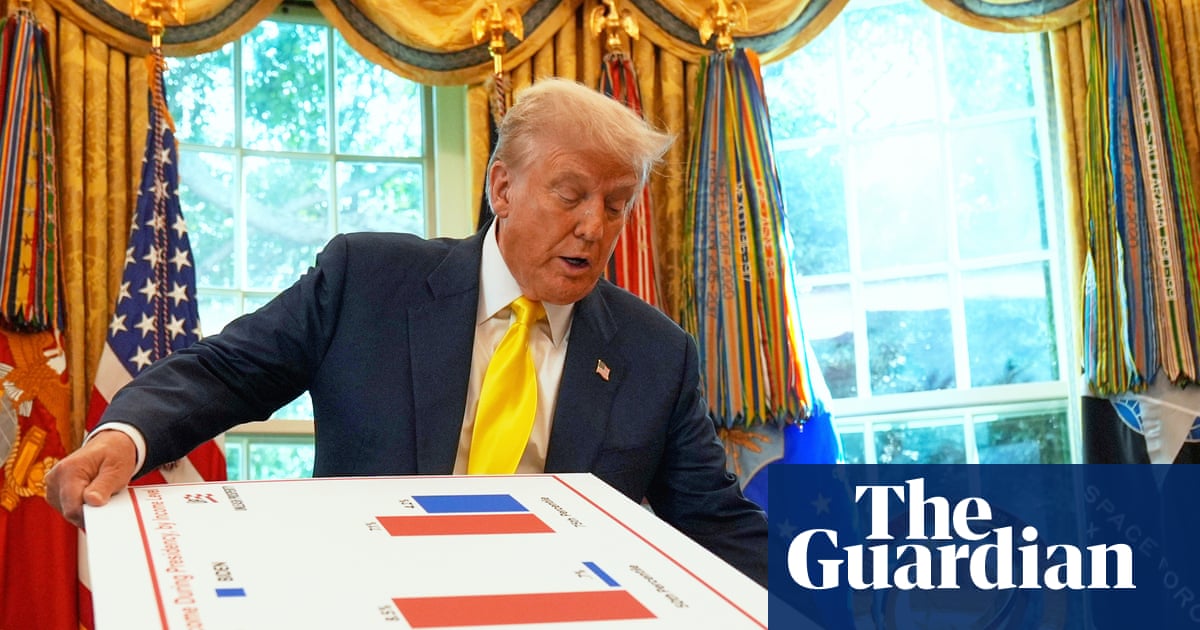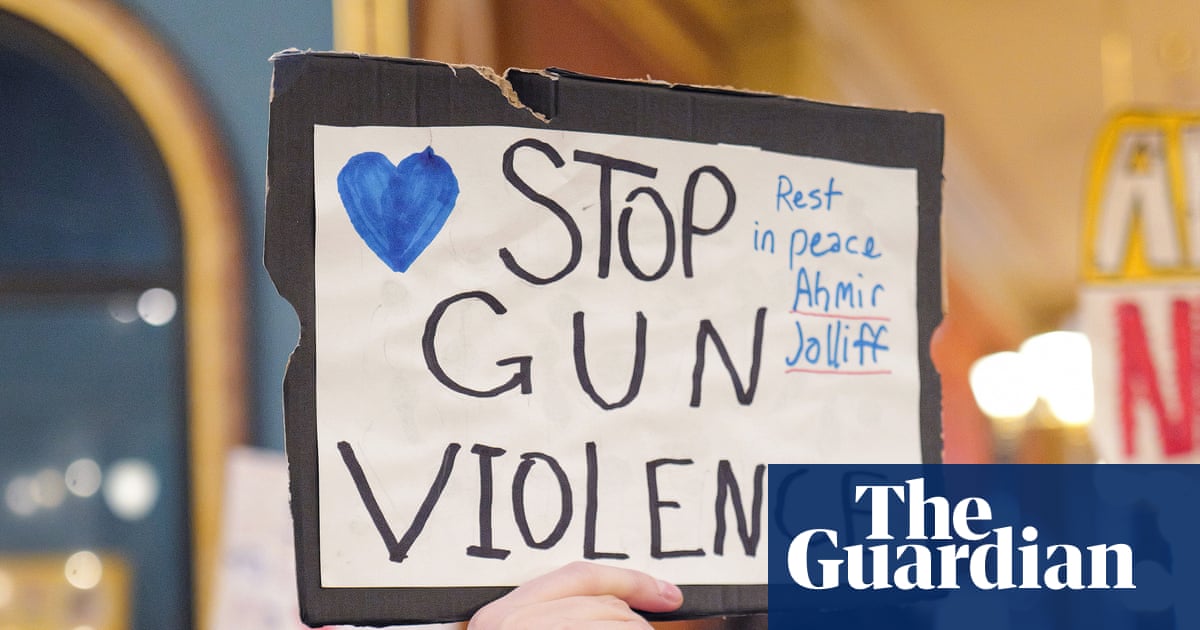The US Department of State has released a long-delayed, legally required report on human trafficking after an investigation by the Guardian and bipartisan pressure from Congress.
The 2025 Trafficking in Persons (TIP) report, which details conditions in the United States and more than 185 countries, was initially scheduled for release at an event in June featuring the US secretary of state, Marco Rubio, the Guardian has reported, but the event was scrapped and staff at the state department office charged with leading the federal government’s fight against human trafficking were cut by more 70%.
The US Trafficking Victims Protection Act requires that the state department provide the report to Congress each year no later than 30 June. The delay in the release of the report this year raised fears among some anti-trafficking advocates that the 2025 document had been permanently shelved.
The report was published quietly on the agency’s website on Monday without a customary introduction from the secretary of state or the ambassador tasked with monitoring and combating human trafficking, a position Donald Trump has not filled.
The state department did not answer repeated questions from the Guardian about why the report had been delayed, but said it was subject to “the same rigorous review process as in years past”.
The Guardian highlighted the report’s delay in a 17 September article reporting that the Trump administration has aggressively rolled back efforts across the federal government to combat human trafficking. White House officials called the Guardian’s findings “nonsense” and said the administration remains committed to anti-trafficking efforts.
Representative Sarah McBride, a Democrat from Delaware, who won unanimous approval from the House foreign affairs committee for an amendment that added additional oversight of federal anti-trafficking efforts hours after the Guardian’s investigation was published, expressed a mix of relief and frustration. “Let’s be clear: this report should never have been delayed in the first place,” she said in a statement.
McBride said she would “be reading it closely, alongside advocates and survivors, to ensure that it lives up to its mission – shining a light on trafficking and pressing governments to act”.
Current and former state department officials told the Guardian that unlike the department’s annual human rights report, which was significantly weakened amid reports of political interference, the human-trafficking report largely appears to represent an honest assessment of agency experts on anti-trafficking work abroad. There was a notable exception. Earlier this year, an effort to draft a section on LGBTQ+ victims, written in coordination with two trafficking survivors, was terminated.
Jose Alfaro, one of the survivors invited to draft the now-excised section, said he was told that Trump’s executive order banning references to diversity, equity and inclusion was the reason he and the rest of the team were pulled off the project.
The term “LGBTQ” doesn’t appear in the 2025 report, and Alfaro says this is a mistake. Without “critical context” about what makes some groups vulnerable to trafficking and how to identify potential victims, “we only contribute to the problem rather than solving it”, he said.
According to a state department spokesperson, “Human trafficking affects human beings, not ideologies. The 2025 TIP report focuses on human trafficking issues directly, as they affect all people regardless of background.”
A state department spokesperson said the US had made significant strides in ending forced labor in the Cuban export program and working with the Department of Treasury in imposing sanctions on entities using forced labor to run online scam centers.
As for shifts in anti-trafficking strategy, the state department provided a statement from Rubio saying the agency is “reorienting our foreign assistance programs to align directly with what is best for the United States and our citizens. We are continuing essential lifesaving programs and making strategic investments that strengthen our partners and our own country.”
The report names Cambodia a “state sponsor” of trafficking for the first time, a designation that can lead to sanctions. It alleges senior Cambodian government officials profit from human trafficking by allowing properties they own to be “used by online scam operators to exploit victims in forced labor and forced criminality”.
after newsletter promotion
Afghanistan, China, Iran, North Korea and Russia – which the report says forcibly has transferred “tens of thousands of Ukrainian children to Russia, including by forcibly separating some children from their parents or guardians” – are also listed among the state sponsors of trafficking.
Representative Chris Smith, a Republican from New Jersey who wrote the landmark Trafficking Victims Protection Act of 2000, released a statement praising Trump. “The president is absolutely right to spotlight and criticize those countries that are not only failing to stop human trafficking, but in many cases, are actively profiting from it,” he said.
Brazil and South Africa were put on a state department “watchlist” of countries that show insufficient efforts to combat human trafficking and may face sanctions for the first time, with the department citing failures of both countries to demonstrate progress on the issue, with fewer investigations and prosecutions.
The document is also critical of Israel, describing as “credible” reports that “Israeli forces forcibly used Palestinian detainees as scouts in military operations in Gaza to clear booby-trapped buildings and tunnels and gather information”.
The allegations were first raised by Palestinian sources and confirmed by Israeli soldiers in testimony gathered by Breaking the Silence, an organization of current and former members of the Israeli military. They have since been substantiated in investigations by Israeli media.
Joel Carmel, a former IDF officer who serves as Breaking the Silence’s advocacy director, said he hoped the report “would be used to be sure Israel is held accountable” and “doesn’t end up sitting on a shelf somewhere”. He said despite a ruling by the Israeli supreme court that declared the use of human shields to be illegal, “there’s certainly the fear that this is the new norm for the IDF”.
Under previous administrations – including Trump’s first – the TIP report was released with great fanfare. The secretary of state typically hosts a “launch ceremony” featuring the TIP ambassador and anti-trafficking “heroes” from around the world.
The delayed report release is part of an ongoing retreat in the Trump administration’s support of anti-trafficking measures, including the impending lapse of more than 100 grants from the Department of Justice, which advocates say could deprive thousands of survivors from access to services when funding runs out today.
-
Aaron Glantz is a fellow at Stanford University’s Center for Advanced Study in the Behavioral Sciences
-
Bernice Yeung is managing editor at the investigative reporting program at UC Berkeley Journalism
-
Noy Thrupkaew is a reporter and director of partnerships at Type Investigations

 German (DE)
German (DE)  English (US)
English (US)  Spanish (ES)
Spanish (ES)  French (FR)
French (FR)  Hindi (IN)
Hindi (IN)  Italian (IT)
Italian (IT)  Russian (RU)
Russian (RU)  3 weeks ago
3 weeks ago
























Comments